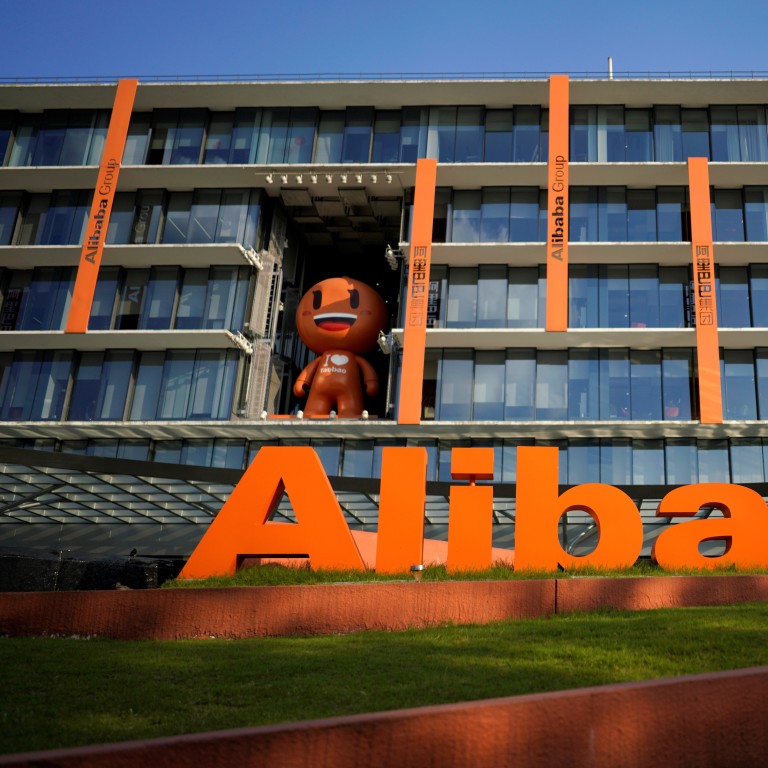
Alibaba shareholders approve one-to-eight stock split, which could ease potential Hong Kong secondary listing
- Share split would give Alibaba greater flexibility for raising capital
- E-commerce company reportedly considering US$20 billion secondary offering in Hong Kong
Alibaba Group Holding’s shareholders overwhelmingly approved a 1-to-8 split of the company’s US-listed stock, a move the company has said would give it greater flexibility for raising capital, including issuing new shares, according to a US securities filing late on Monday.
The approval comes as the company is reportedly considering a secondary listing of its shares in Hong Kong.
Alibaba ramps up global e-commerce expansion with English Tmall portal
Bloomberg previously reported that Alibaba, the operator of the world’s largest e-commerce platform, is considering raising as much as US$20 billion in the offering.
Alibaba is the parent company of the South China Morning Post.
The announcement followed Alibaba’s annual general meeting in Hong Kong on Monday.
Under the changes, one ADS, which currently represents one ordinary share, will represent eight ordinary shares. Voting rights of shareholders will remain the same.
The company said that the share split would not result in a gain or loss or realisation of taxable income to shareholders under US tax law.
Alibaba projects 500 billion yuan in annual revenue
Shareholders also approved the re-election of Daniel Zhang Yong, Alibaba’s chief executive, and three other directors to the company’s board.
The other directors who were re-elected are: Tung Chee-hwa, vice-chairman of the Thirteenth National Committee of the Chinese People’s Political Consultative Conference and the first chief executive of Hong Kong from 1997 to 2005; Jerry Yang, co-founder of Yahoo Inc; and Wan Ling Martello, the former chief executive for Asia, Oceania and Subsaharan Africa for Nestle. Shareholders also ratified the appointment of PricewaterhouseCoopers as the independent registered public accounting firm for fiscal year 2020.
The Hangzhou-based company has not confirmed whether it would seek a secondary listing in Hong Kong, saying it does not comment on market rumours.
It has been listed on the New York Stock Exchange since 2014, when it raised US$25 billion in its initial public offering.
At the time, Alibaba expressed frustration with Hong Kong’s listing rules, with its vice-chairman, Joe Tsai, writing in a blog post that “the question Hong Kong must address is whether it is ready to look forward as the rest of the world passes it by”.
The city’s stock exchange operator, Hong Kong Exchanges & Clearing Limited (HKEX), and the Securities and Futures Commission (SFC) have adopted a series of reforms to the city’s rules, including allowing listings by dual-class share companies, such as Alibaba.
The exchange hopes to attract more Chinese tech companies, with similar structures, to list in Hong Kong as it fights with New York, London and Shanghai’s new technology innovation board for IPOs.
Chinese smartphone maker Xiaomi and food-delivery service app Meituan Dianping both listed in Hong Kong last year following the rules changes.
Anheuser-Busch scraps US$9.8 billion IPO for Budweiser in Hong Kong
A listing later this year by Alibaba would be a welcome shot in the arm for the Hong Kong stock exchange after three IPOs were pulled in the past month, including Anheuser-Busch InBev’s listing of its Asian operations for as much as US$9.8 billion.
Additional reporting by Daniel Bases

